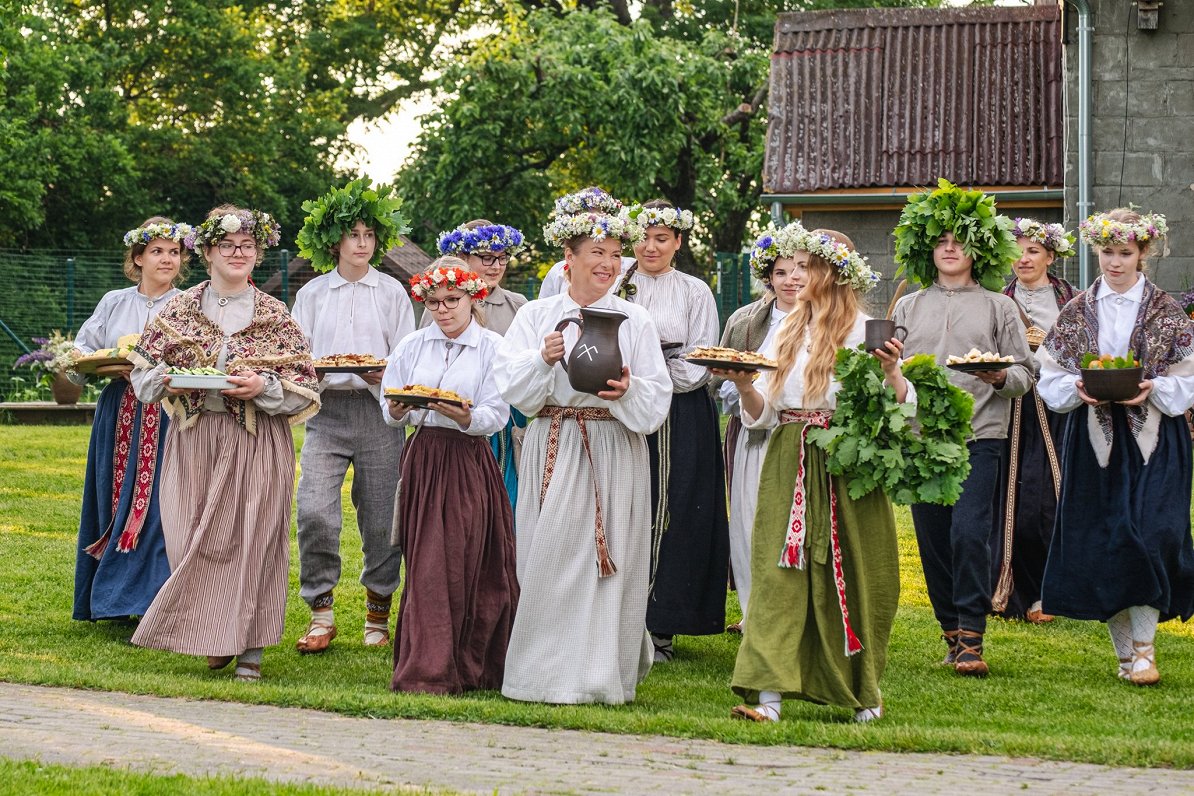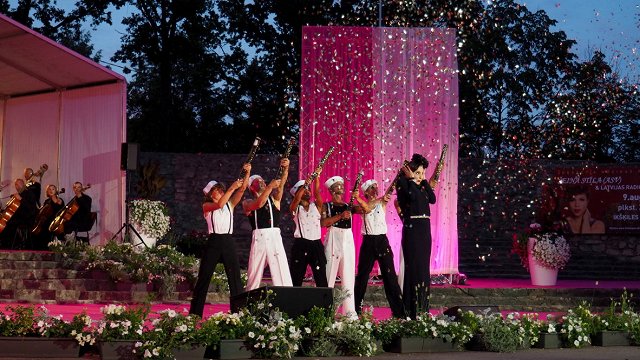The chief activities include drinking beer by the bonfire; grilling meat; eating the traditional Midsummer cheese (with lots of caraway seeds) and singing and dancing to seasonally-specific folk songs in the open air.
During these events, going to sleep is taboo (if you do doze off, you will "sleep all year"), as you are supposed to greet the sunrise in the morning.
Many city dwellers leave the capital for the countryside, while others gather at concerts and fairs in the capital and pretend they are in the countryside.
Many cars will be decorated with leaves, wreaths and other folkloric symbols – but don't get too carried away with the beer-drinking as the police have their own traditional crackdown on drunk drivers for the duration of the holidays.
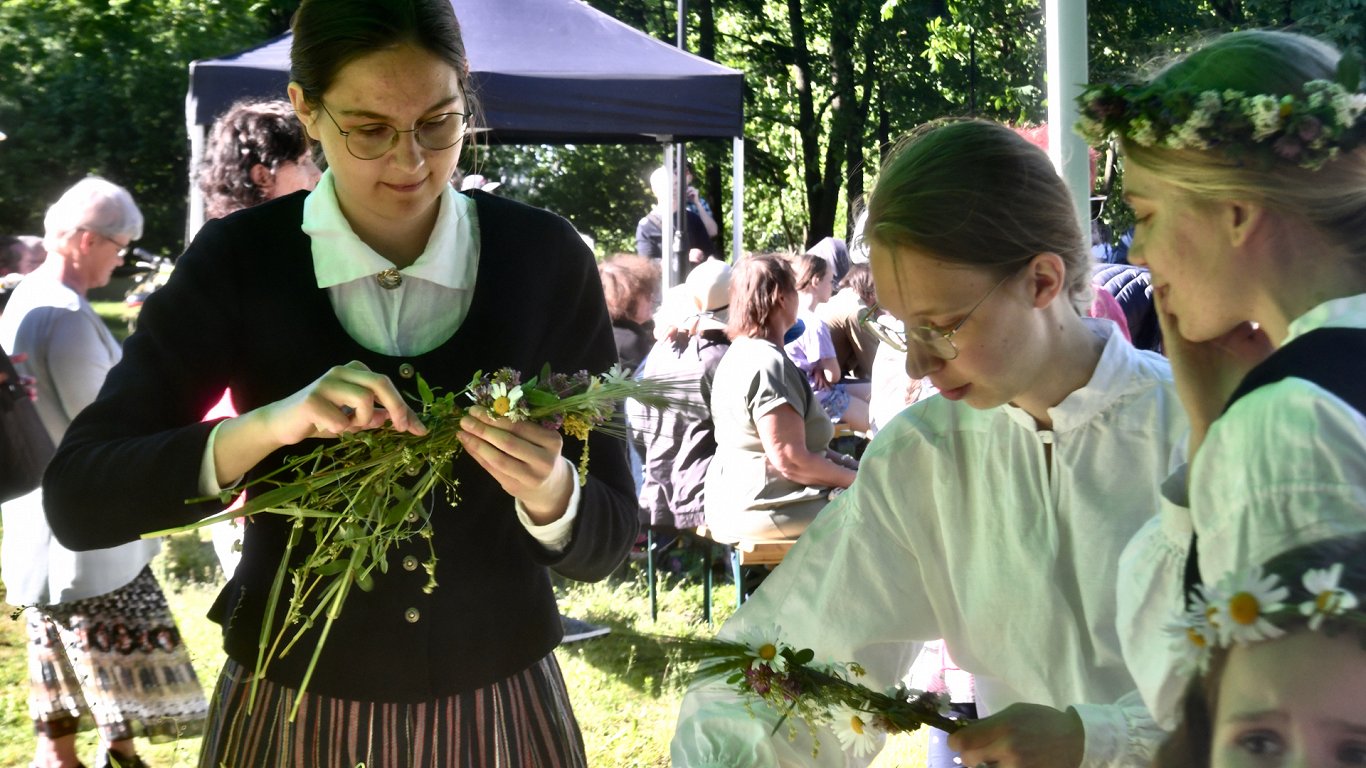
While it's understandable if foreigners don't know traditional Latvian songs, singing along to the Midsummer songs' common refrain Līgo, Līgo! will help you get into the mood. Indeed, merely walking around with a smile on your face and some flowers in your hand while uttering these magic words will likely be enough for everyone to agree you are an excellent person.
You can make your own traditional wreaths of oak leaves (for men, especially those named Jānis and its variants such as 'John') and meadow flowers (for women, especially those named Līga). Folk costume or simple white linen shirts are the preferred dress code.
Should you find yourself outside the capital and not really knowing what to do, hospitality is the order of the day. You might even expect to be invited to join someone else's Midsummer party, particularly if you wander around in the manner outlined above.
Nevertheless, a solitary Jāņi in the midst of Latvian nature has its own magic. It's a good idea to have bug repellent on hand if you intend to stay up all night, and to regularly check your legs for ticks if wandering barefoot through the meadows.
If you find yourself in need of beer, it is sold pretty much everywhere, including at gas stations.
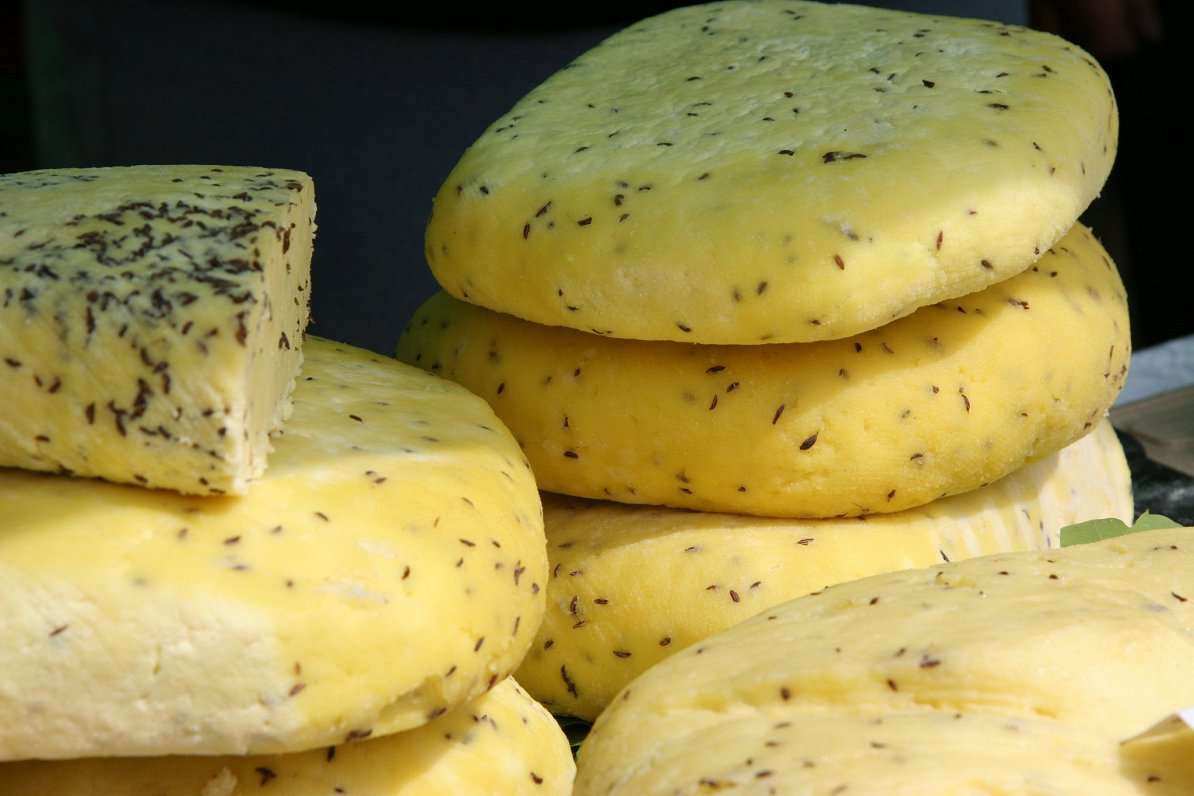
It's possible someone close to you may invite you for a walk into the fields or forest in search of the highly prized and rarely-seen "fern flower". This is a real honor, but don't be surprised if you discover more than you bargained for. It will certainly help to keep you awake until sunrise.
You can find out more about Latvia's Midsummer traditions in this rundown from the Latvia Travel website.
One of the more eye-catching aspects of the celebrations is jumping over a bonfire. Maybe you'll have the nerve to follow Latvians in this adventure (best wait until the flames have died down a bit) – but safety should be your main concern; the same applies to intoxicated swimming and the aforementioned driving under the influence, which will see your hard-won reputation destroyed in the estimation of Midsummer purists. Tragic deaths every year and a significant number of driving-under-the-influence convictions are the darker side of the Midsummer festival.
Chowing down on a burger and fries, drinking whisky or playing techno music at high volume will also shatter the Midsummer ambiance and your reputation. Avoid, unless you really want a reputation as a boorish foreigner.
There is a final important Midsummer tradition that isn't usually mentioned: arguing with family, friends and colleagues about the precise nature of a 'proper' Midsummer celebration. Whether it's the exact recipe for the cheese, the exact words of the third verse of a song or the exact order in which things should be done, everyone has their own idea of perfection and an unshakeable belief that their own family has always done it the proper way. Obscure grandmothers from Latgale are usually regarded as possessing the necessary legal knowledge to hand down definitive judgments in such cases.
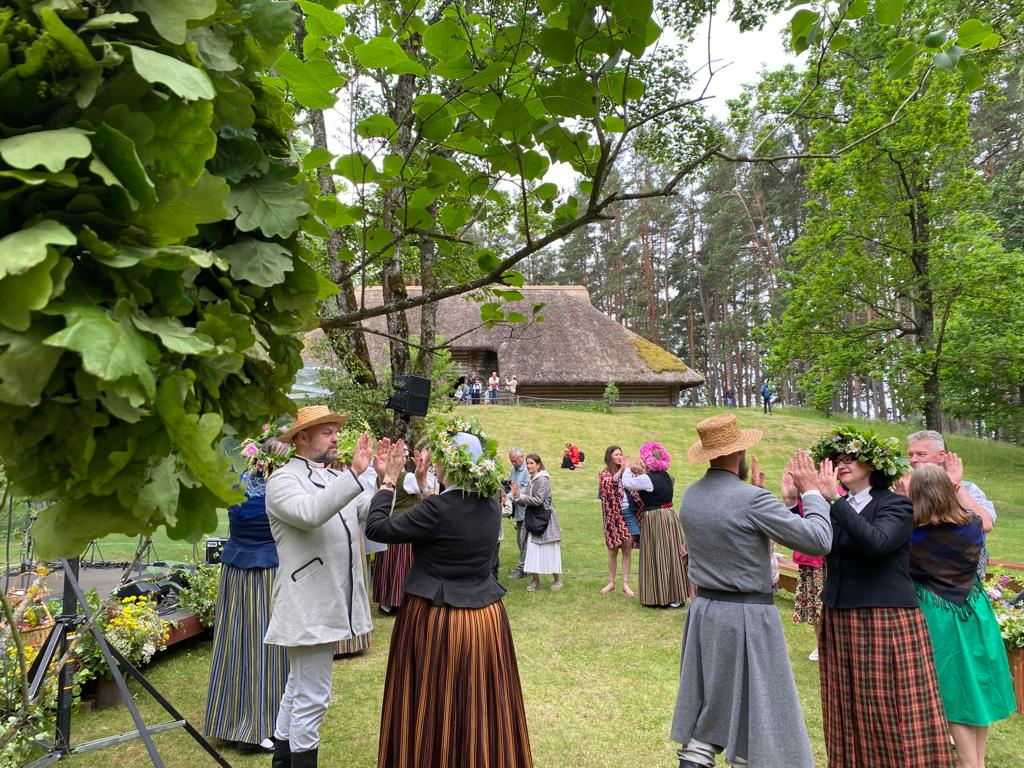
Indeed, even within the usually placid LSM staff there is always plenty of argument and counter-argument concerning the exact terms we should use when wishing people a happy Midsummer. One camp has it that the whole thing should be referred to only as the Jāņi festival (June 24), though in common usage people often refer to Līgo festival (June 23), too. No definitive decisions are expected until the Midsummer celebrations are over and several grandmas from Latgale have been consulted – who will likely all give different correct answers.
The main thing is to enter into the spirit of the thing. Midsummer is about enjoying yourself, but also about feeling and appreciating your connection to family, friends, your culture and nature. If people tut-tut in your direction, you're doing something wrong. If they raise their glasses and sing at you, you're definitely doing something right. So we will hedge our bets and wish you Saulainus Līgo svētkus un Priecīgus Jāņus (Sunny Līgo festival and a happy Jāņi)!
